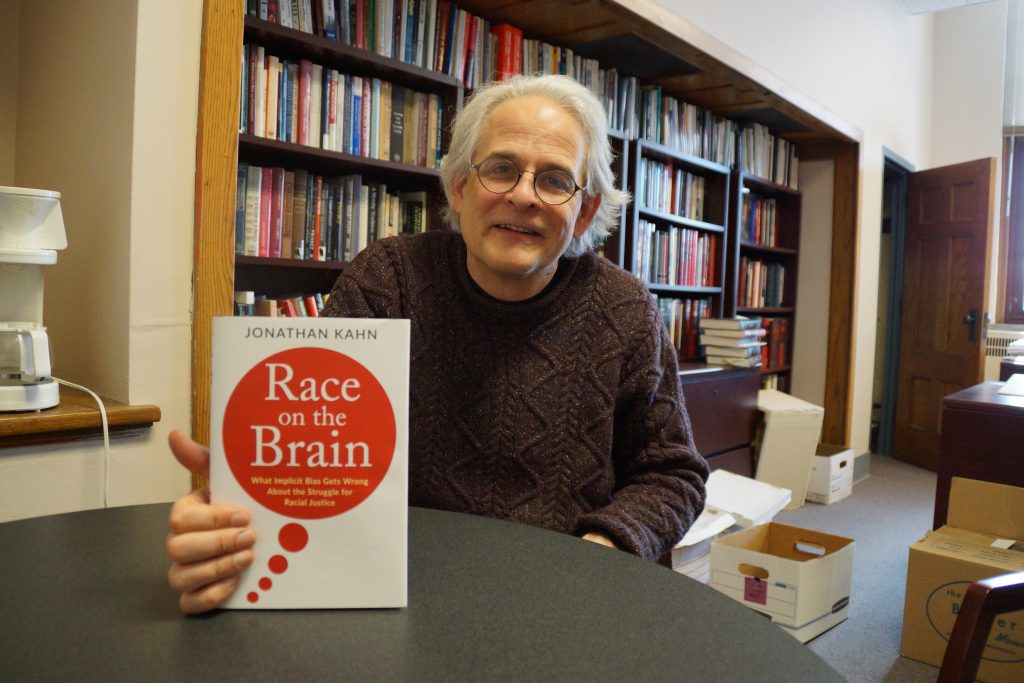 In his new book, Prof. Jonathan Kahn takes issue with implicit bias.
In his new book, Prof. Jonathan Kahn takes issue with implicit bias.
It’s right there in the title: “Race on the Brain: What Implicit Bias Gets Wrong About the Struggle for Racial Justice.”
It’s not that Kahn doesn’t believe in implicit bias—the idea that we all carry certain prejudices against groups of people or other cultures in our subconscious, even if we know it’s wrong — rather he believes we use the concept too much in explaining race relations in America today. He maintains that as a master narrative implicit bias allows us to “get off the hook too easily” when it comes to dealing with racism in society.
“It makes racial injustice into primarily a function of individual mindsets and intent,” Kahn says. “It makes the past irrelevant, it ignores structural factors, and it focuses on the intent of the perpetrator rather than on the impact of the person who is actually experiencing the harm.”
In his book, published by Columbia University Press of New York, Kahn maintains that implicit bias could negatively affect efforts to end racial injustice. If people turn to experts to diagnose and provide technical fixes for implicit bias, they might be less likely to work democratically to fix societal problems that have led to racism.
Kahn’s book calls for society to step back and rethink what the nature of racism is and how best to take on the difficult job of finding solutions.
“The legacy of racism is still very much with us,” Kahn says. “It’s not just in the past. It’s more than a question of just individual attitudes, it’s a question of power.”
